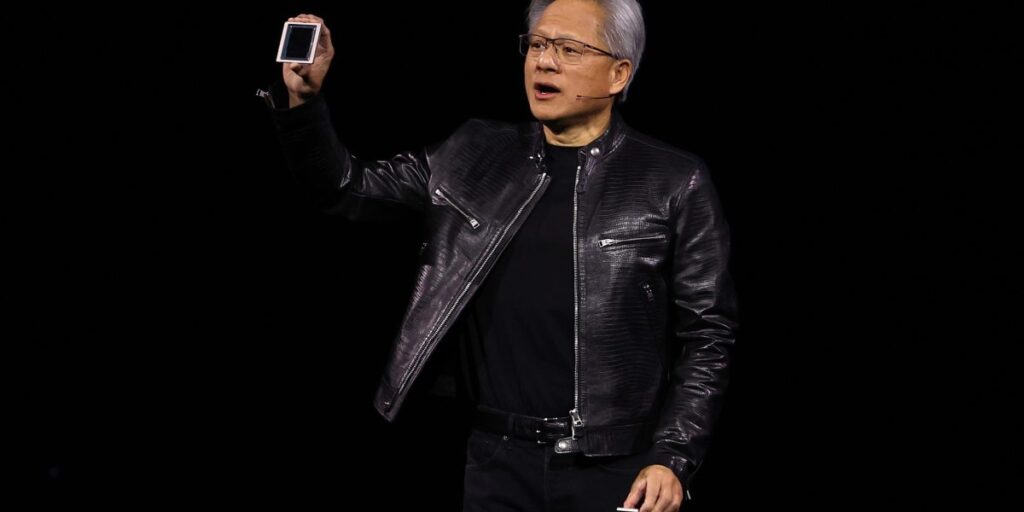
Nvidia Corp. has hit engineering hurdles in developing two new advanced chips, slowing the release of products aimed at extending its leadership in the artificial intelligence computing market.
Those delays affected Nvidia’s much-anticipated Blackwell line of products, announced in March, people familiar with the matter said. A version of the chip, called the AI Accelerator, is being redesigned to work better with data center infrastructure designed for the earlier chip, the Hopper H100.
However, the people familiar with the matter, who asked not to be identified because the matter is private, said it was a relatively small part of the market. In addition, they said, products combining processors and graphics chips will not be available in large numbers as quickly as hoped because of problems with supporting technology.
The obstacles, first reported by the news website, reflect the challenges Nvidia faces in accelerating the pace of innovation. Chief Executive Jen-Hsun Huang is rolling out new chip designs and technologies more quickly in an effort to maintain its edge in artificial intelligence computing. The company dominates the artificial intelligence accelerator market, a strength that has seen its sales and market valuation soar over the past two years.
Nvidia declined to comment on “rumors” about recent engineering issues. The company said it has started shipping Blackwell samples to customers and that demand for its Hopper generation remains strong.
The Santa Clara, California-based company said in a statement that Blackwell “is expected to increase production in the second half of the year.”
Reports of delays sent Nvidia shares down 6.4% on Monday, but a massive rout in technology stocks also weighed on the stock. Meanwhile, rival Advanced Micro Devices Inc. shares rose 1.8% — a sign investors hope the company can capitalize on the problems.
Nvidia supplies chips to companies including Microsoft and Alphabet Inc.’s Google, which are spending billions of dollars building data centers in anticipation of a surge in demand for artificial intelligence services.
While delays could affect the flow of parts produced by TSMC, analysts have mostly taken the concerns in stride. TD Cowen analyst Matt Ramsay said in a research note that “shocks will continue to occur” given the acceleration of innovation.
He said a delay of several weeks would likely not have an impact on Nvidia’s rapid revenue growth or long-term growth. However, much depends on how quickly Nvidia can resolve the issues and deliver chips to key customers.
In May of this year, Nvidia’s Jensen Huang said that Blackwell was in full production and would be available to cloud computing providers later this year. He predicts demand for the new product line and its predecessors will continue to exceed supply.
“We’re going to see a lot of revenue from Blackwell this year,” Huang said on a post-earnings conference call with analysts. The company is scheduled to release its next quarterly report on August 28.
CEO Daily provides the critical context news leaders in the business world need to know. Every weekday morning, more than 125,000 readers trust CEO Daily to get insights on the C-suite and beyond. Subscribe now.

